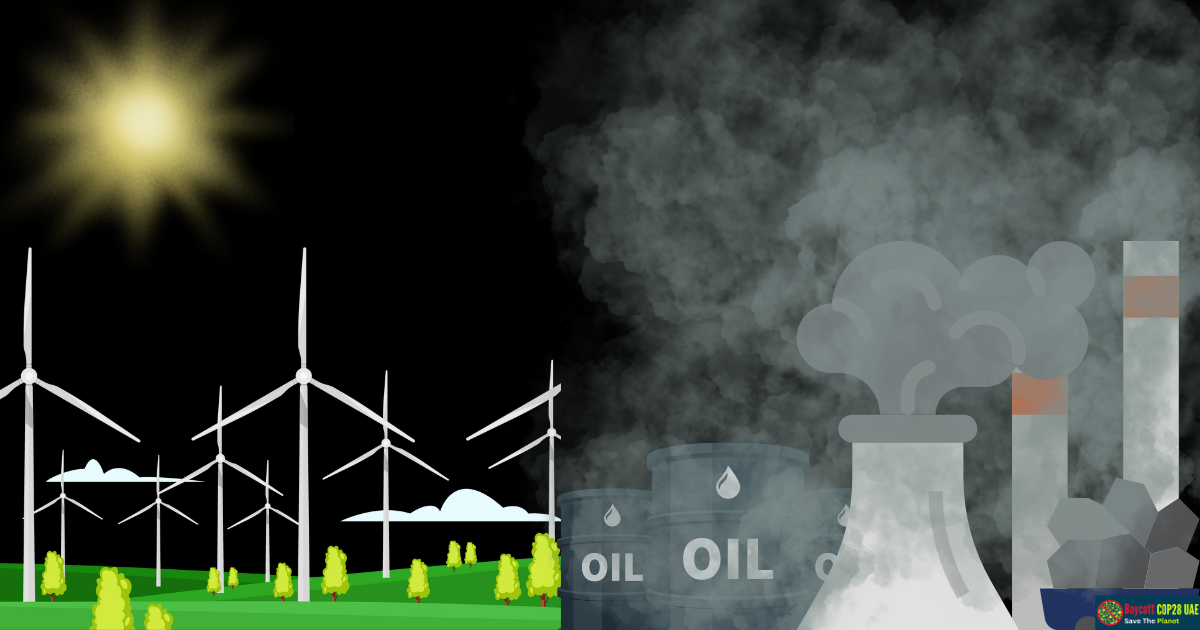Fossil fuels are key in powering our world, fueling transportation and industries. However, these non-renewable resources pose significant environmental risks and are depleting rapidly. As we witness a growing global population and increasing dependence on gas, oil, and coal, the question arises: when will fossil fuels finally run out?
The answer to the complex question: When will we run out of fossil fuels lies in examining current reserves and evolving fuel demands. This article will delve into the world of fossil fuels, their origins, energy density, and environmental impact. We will also explore the prospects of running out of these vital resources and the transition to sustainable energy sources, all in the context of the upcoming COP28.
Understanding Fossil Fuels
Fossil fuels are derived from organic materials known as hydrocarbons. These materials transform into coal, natural gas, and oil through lithification and degradation over millions of years. These resources can be extracted by drilling into the Earth’s crust, providing a significant energy source.
For instance, the North Sea holds oil reserves that are approximately 150 million years old, while coal deposits in the UK began forming around 300 million years ago. Each fossil fuel possesses a distinct energy density and pollution capacity, influencing its usage and environmental impact.
The Growth of Fossil Fuel Consumption
Fossil fuel consumption has experienced exponential growth over the past two centuries. Initially, coal dominated as the exclusive fossil fuel until crude oil consumption began in 1860. Coal usage stood at about 97 TWh (terawatt-hours) in the early 1800s but surged to 43,000 TWh by 2017.
Natural gas production commenced in the late 1880s, diversifying fossil energy consumption throughout the 20th century. As a result, coal’s share decreased from 96 percent to around 30 percent by 2000. Crude oil is the primary energy source, contributing approximately 39 percent of fossil energy, followed by coal at 33 percent and natural gas at 28 percent.
The Countdown: How Long Will Fossil Fuels Last?
Predicting the lifespan of fossil fuels depends on two factors: the rate of consumption, influenced by the efficiency of consumption technology, and the availability of reserves. The reserves encompass proven probable and possible resources.
Coal, the earliest utilized fossil fuel, is relatively easy to mine and use. The World Coal Association estimates global coal reserves at around 1.1 trillion tonnes, with major deposits in the US, Russia, China, Australia, and India. Considering current consumption rates, we have approximately 132 years’ worth of coal reserves.
Oil, with its underground reserves, requires drilling, pumping, and processing. As of 2022, proven oil reserves totaled around 1,757 billion barrels, with Venezuela, Saudi Arabia, and Canada holding significant concentrations. Global oil consumption currently stands at approximately 96.5 million barrels per day, projected to reach 109 million barrels per day, according to OPEC. If demand forecasts remain steady, known oil reserves may last around 47 years. However, accessing reserves will become increasingly challenging, costly, and inefficient as we dig deeper into the Earth’s crust.
Natural gas, considered one of the cleaner fossil fuels, derives mainly from decomposed organic matter. Landfills and livestock also contribute to its production. As of 2020, approximately 7,257 trillion cubic feet of proven natural gas reserves existed globally. Based on consumption rates, experts estimate that natural gas reserves will last between 90 and 120 years. Despite a slight decline in production, natural gas is expected to play a growing role in global energy sources.
The Transition to Sustainable Energy
Fossil fuels are limited in supply and non-renewable, making them unsustainable energy sources. Their use contributes to carbon emissions, air and water pollution, and habitat destruction. Governments and businesses are increasingly focusing on renewable energy resources to address these challenges.
Renewables like solar and wind power offer sustainable alternatives that mitigate climate change by reducing carbon emissions. Solar power, for instance, boasts a short two-year energy payback period, meaning the energy produced during its construction equals the energy consumed. Beyond this period, solar parks can generate clean energy for decades.
As we approach COP28, the global community must emphasize the importance of transitioning to renewable energy sources. This involves investing in research, development, and innovative technologies to maximize renewable energy potential. Additionally, encouraging policies and international cooperation can facilitate the rapid adoption of sustainable energy solutions.
UAE And COP28
The United Arab Emirates (UAE) has been criticized for its environmental record, despite its hosting of COP28
- The UAE is an oil producer and exporter country with high carbon emissions. In 2020, the UAE was the 17th largest emitter of greenhouse gases in the world
- The UAE has been slow to transition to renewable energy. In 2020, only 7% of the UAE’s electricity came from renewable sources
- The UAE has been accused of greenwashing or making misleading claims about its environmental commitments. For example, the UAE has been criticized for its plans to build a new coal-fired power plant
In addition to these criticisms, the UAE has been accused of using COP28 to promote its own economic interests. For example, the UAE has been criticized for its plans to use COP28 to promote its role as a hub for the hydrogen economy.
Conclusion: Are We Running Out Of Fossil Fuels
The question of when will we run out of fossil fuel is a complex one with no definitive answer. However, considering current reserves, consumption rates, and the shift towards renewable energy, it is clear that our reliance on fossil fuels must decrease. COP28 provides an ideal platform to address these concerns and work towards a sustainable future. Investing in renewable energy sources and adopting environmentally friendly practices can reduce our carbon footprint and ensure a brighter, cleaner future for generations to come.






